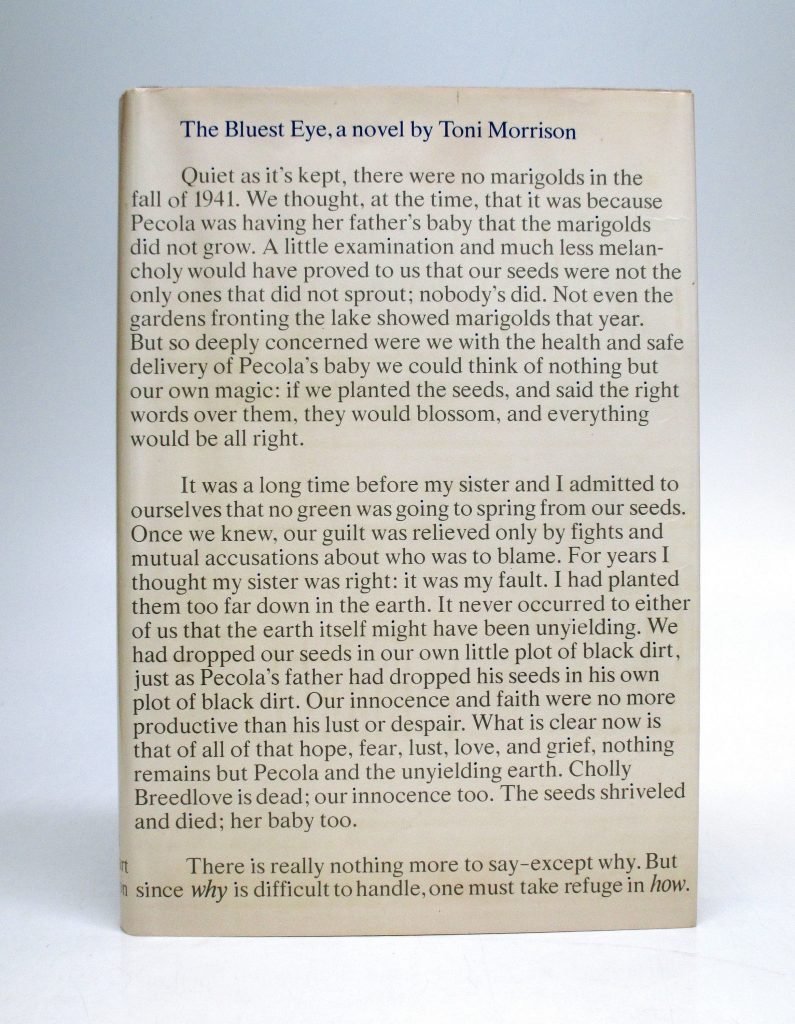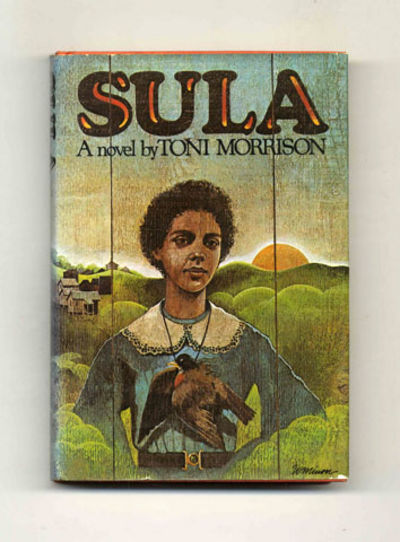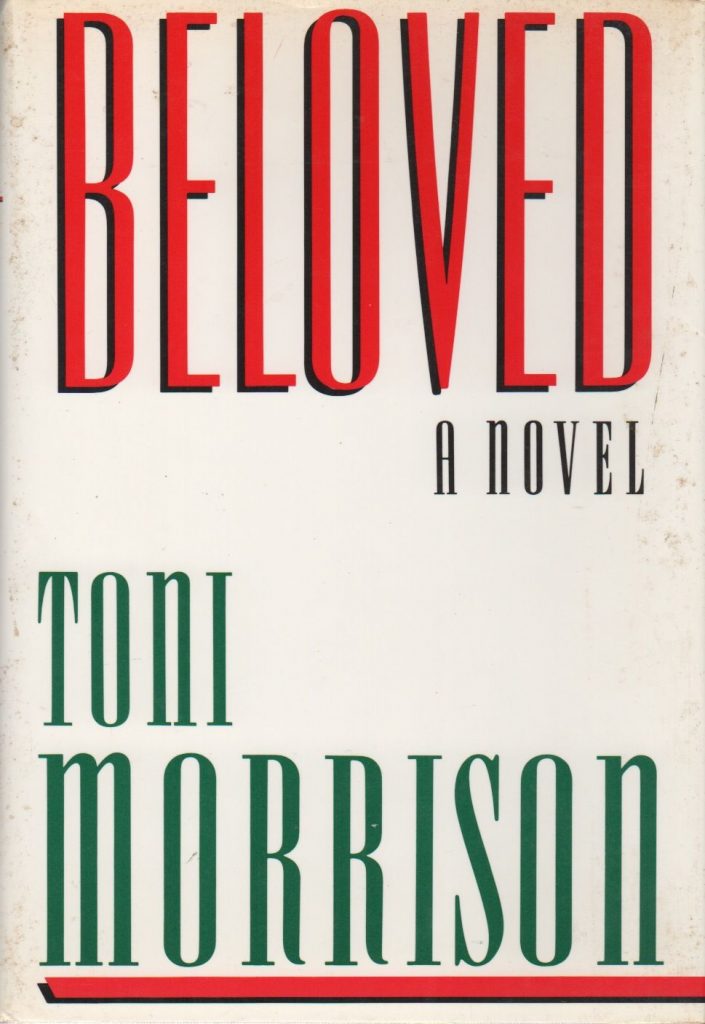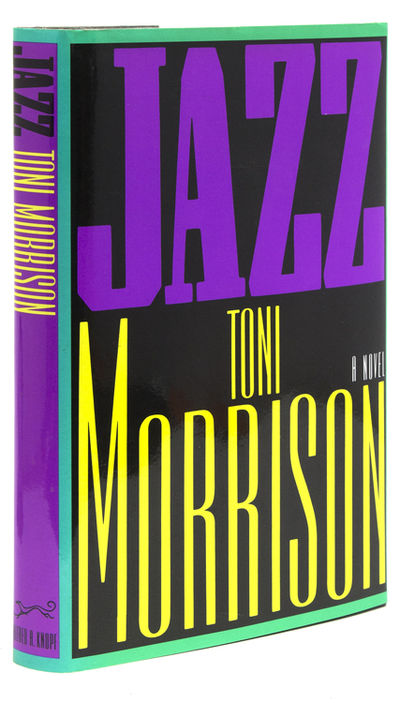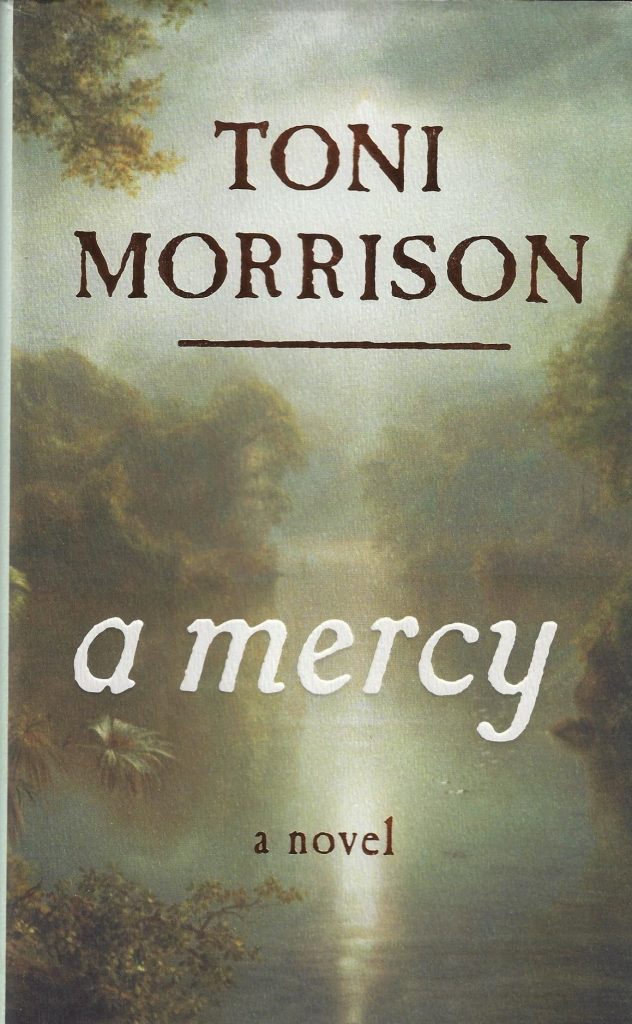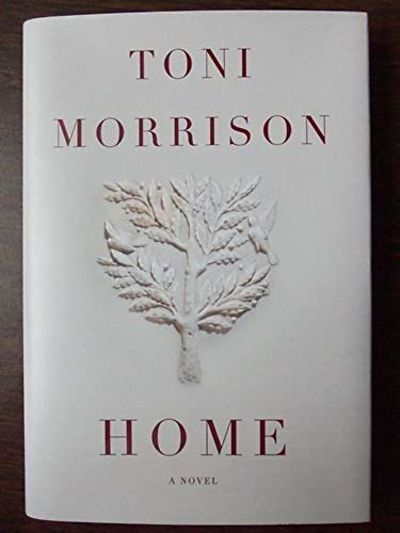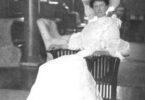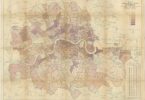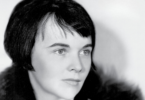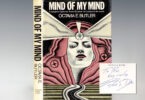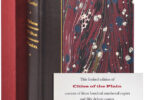I first read Toni Morrison as an undergraduate, with Song of Solomon in Dr. Anissa Wardi’s classes at Chatham College in the early 2000s.
Since then, Macon Dead III, aka Milkman, has never left my memory and I spent my college summers checking out all of Morrison’s books from the Squirrel Hill Branch of the Carnegie Library.
During her 88-year life, Morrison published a total of eleven novels, five children’s books, nine non-fiction books, two short stories, and two plays. She also edited multiple volumes of works and her own writings have been compiled into collections, as well.
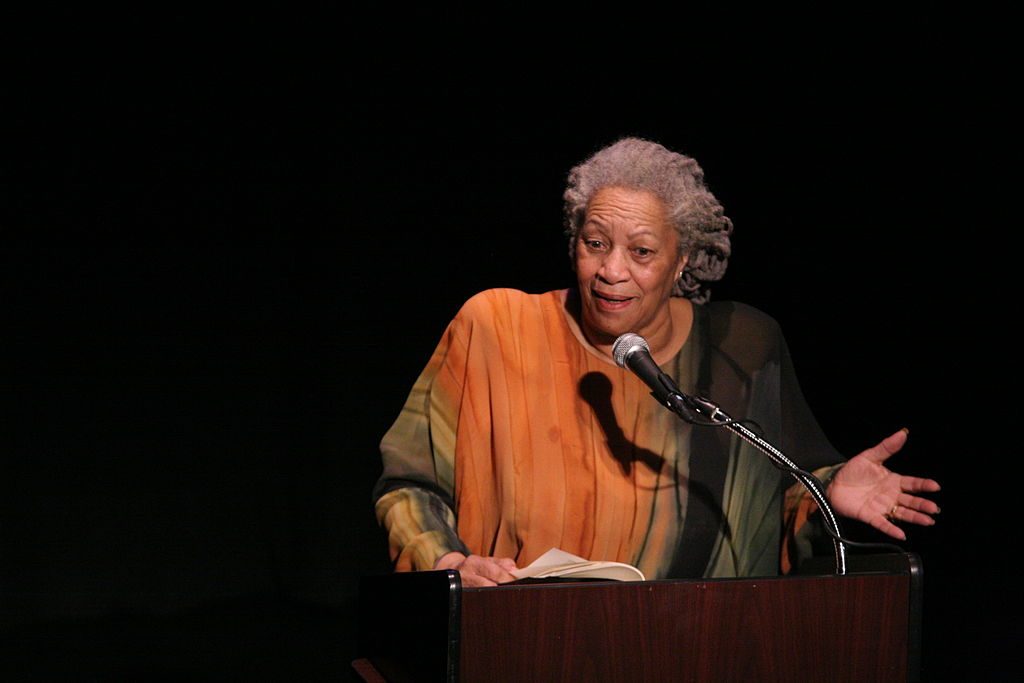
Born Chloe Ardelia Wofford on February 18, 1931, in Lorain, Ohio, Morrison was an American novelist, essayist, editor, and teacher. At age 12 Morrison became a Catholic and took the baptismal name Anthony in honor of Saint Anthony, which was later shortened to the nickname, Toni. After graduating from high school, she enrolled at Howard University, graduating with a BA in English before continuing her studies at Cornell University where she received her Masters in 1955.
From 1967 until 1983, Morrison worked as an editor at Random House, making her the first female African-American editor in the company’s history. She was committed to bringing attention to writers of color and during her time at Random House she published Gayl Jones, Toni Cade Bambara, Henry Dumas, Huey P. Newton, Muhammad Ali, and Angela Davis.
Morrison also brought about an important work, The Black Book, published in 1974 by Random House. The Black Book was an anthology of black history that used photographs, songs, drawings, and letters to present black history in America in a new way – not as something that happened to black people, but something that they were a part of.
In her fiction, Morrison presented strong and complex characters and called out the static caricatures of black people that were often presented in white literature. She gave them voices and lives that anyone reading could relate to.
Her first novel, The Bluest Eye (1970), was published by Holt, Rinehart, and Winston. Morrison wrote while she was teaching at Howard University and raising her two sons on her own. She followed that with the novel Sula, published in 1973 by Alfred A. Knopf, who published her subsequent nine novels.
Her 1987 novel, Beloved, was awarded the 1988 Pulitzer Prize for Fiction and in 1993 Morrison was awarded the Nobel Prize in Literature. Her novels Sula and Beloved were both finalists for the National Book Award. In 1996, Morrison was honored with the National Book Foundation’s Medal of Distinguished Contribution to American Letters, and in 2012 she was presented the Presidential Medal of Freedom by President Barack Obama.
Fiction
The Bluest Eye (1970)
Morrison’s first novel tells the story of Pecola Breedlove, an eleven-year-old African-American girl growing up in Lorain, Ohio after the Great Depression. Pecola prays for blond hair and blue eyes so she can feel beautiful and less alone, ashamed and what she believes is her ugliness because of her dark skin. Through the tragic character of Pecola, Morrison illustrates the deep harm that racism has inflicted on society.
Sula (1973)
Set in the early 1900s in a small Ohio town, Sula is the account of two African-American friends, Sula Peace and Nel Wright, from their childhood through their adulthood and Sula’s death. As their lives take different paths their friendship is threatened by an unforgivable betrayal.
Song of Solomon (1977)
Song of Solomon follows the like of Macon “Milkman” Dead III from his birth in Michigan into adulthood, where he travels back to his family’s ancestral homes looking for keys to his past and unable to shake his yearning to ‘fly’.
Tar Baby (1981)
Tar Baby is a novel about a love affair between two very different black Americans: Jadine, a privileged and Sorbonne-educated fashion model, and Son, an impoverished and strong-minded man.
Beloved (1987)
Winner of the 1988 Pulitzer Prize for Fiction, Beloved was inspired by an article Morrison found in a 1956 American Baptist newspaper entitled “A Visit to the Slave Mother who Killed Her Child” and reproduced in The Black Book, a miscellaneous compilation of black history and culture that Morrison edited in 1974. Taking place in America following the Civil War, the novel tells a haunting tale about a mother who kills her young daughter to save her from a life of slavery. The child returns to haunt the family in the form of a girl named ‘Beloved,’ which was the same epigraph carved on the murdered child’s grave.
Jazz (1992)
Jazz is a historical novel that takes place in Harlem in the 1920s. The book explores a love triangle between Joe Trace, a door-to-door cosmetics salesman who shoots his teenage lover, Dorcas, to death, and his wife, Violet, who assaults the young girl’s corpse at her funeral.
Paradise (1997)
Paradise takes place in Ruby, an all-black town in rural Oklahoma with a population of 360. The story weaves around an attack on a convent and the women who inhabit it by nine men from Ruby. The first novel released by Morrison after winning the Nobel Prize in Literature in 1993, Paradise is the last part of her trilogy on African-American history after Beloved and Jazz.
Love (2003)
Love is Morrison’s eighth novel, and it tells the story of the charismatic hotel owner Bill Cosey and the women in his life, the business he ran, and the reasons behind his tumultuous life.
A Mercy (2008)
A Mercy is Toni Morrison’s ninth novel. The story takes place in the 1680s when the slave trade in the Americas was still in its infancy. Jacob Vaark is an Anglo-Dutch trader and adventurer who takes a small slave girl named Florens in payment for a bad debt from a plantation owner. Florens, who was rejected by her own mother, searches for love to heal that rejection.
Home (2012)
Home is the tenth novel by Toni Morrison. First published by Alfred A. Knopf in 2012, it tells the story of Frank Money, a 24-year-old African-American veteran of the Korean War, who returns home to face his segregated homeland.
God Help the Child (2015)
Published by Alfred A. Knopf in April 2015, this novel once again explores the complex relationships between mothers and daughters. In God Help the Child the mother, Sweetness, rejects her daughter Bride because of her dark skin.
Children’s Books
Toni co-wrote a series of children’s books with her son Slade Morrison, who died in 2010 at the age of 45 from pancreatic cancer. Many of the books, including the ‘Who’s Got Game?’ series, The Tortoise or the Hare, and Little Cloud and Lady Wind are clever retellings of classic Aesop’s fables.
The Big Box (1999)
The Book of Mean People (2002)
Who’s Got Game? The Ant or the Grasshopper? (2003)
Who’s Got Game? The Lion or the Mouse? (2003)
Who’s Got Game? Poppy or the Snake? (2003)
Peeny Butter Fudge (2009)
The Tortoise or the Hare (2010)
Little Cloud and Lady Wind (2010)
Please, Louise (2014)
Plays:
Desdemona
With a foreword by Peter Sellars. Desdemona is Toni Morrison’s response to Sellar’s 2009 production of Othello.
Non-Fiction
The Dancing Mind (1996)
The Dancing Mind is a speech Morrison gave upon her acceptance of the National Book Foundation Medal for Distinguished Contribution to American Letters on the sixth of November, 1996. She discusses the importance of reading and writing, along with with the pleasures and difficulties the passion for the craft brings.
The Black Book (1974)
Compiled during her time as an editor at Random House, copies of The Black Book are quite hard to find. Random House released a reprint of The Black Book in 2009 which was updated to include some of Morrison’s poetry.
Playing in the Dark: Whiteness and the Literary Imagination (1992)
An adaptation of speeches given by Toni Morrison at Harvard, exploring the effect a racialized society has had on American literature of the 19th and 20th centuries.
Race-ing Justice, En-gendering Power: Essays on Anita Hill, Clarence Thomas, and the Construction of Social Reality (1992)
Morrison edited and wrote the introduction to this collection of 19 essays includes contributions by Homi K. Bhabha, Margaret A. Burnham, Kimberlé Crenshaw, Paula Giddings, A. Leon Higginbotham, Jr., Claudia Brodsky Lacour, Wahneema Lubiano, Manning Marable, Nellie Y. McKay, Nell Irvin Painter, Gayle Pemberton, Andrew Ross, Christine Stansell, Carol M. Swain, Michael Thelwell, Kendall Thomas, Cornel West, and Patricia J. Williams.
The Nobel Lecture in Literature, 1993
Published by Alfred A. Knopf in 1994, this is the speech Toni Morrison gave upon receiving the Nobel Prize in Literature in 1993 in Stockholm, Sweden.
Conversations with Toni Morrison (1994)
Collected interviews with Morrison published by the University Press of Mississippi and edited by Danielle Taylor-Guthrie.
Birth of a Nation’hood: Gaze, Script and Spectacle in the O.J. Simpson Case (1997) by Pantheon
Edited by Toni Morrison and Claudia Brodsky Lacour, with an introduction by Toni Morrison, this book includes contributions by George Lipsitz, A. Leon Higginbotham, Jr. and many others.
Burn this Book: PEN Writers Speak out on the Power of the Word (2009) Harper. edited by Toni Morrison
Award-winning writers like Salman Rushdie, Nadine Gordimer, and Toni Morrison, who also edited the book, write about the power of literature.
Remember: The Journey to School Integration (2004)
Published on the 50th anniversary of the groundbreaking Brown vs. Board of Education Supreme Court decision overruling ‘separate but equal’ schools, Remember weaves Morrison’s fictional dialogue of integration with historical photos depicting the desegregation of schools.
What Moves at the Margin: Selected Non-Fiction (2008)
This collection of Morrison’s non-fiction spans three decades, from the early seventies when she worked as an editor at Random House, through her time as a professor at Princeton, broken up into three sections: Family and History, Writers and Writing, and Politics and Society.
The Origin of Others (2017)
Drawing on her Norton Lectures, Morrison elaborates on themes that dominate national and world politics: race, fear, borders, globalization, the mass movement of people, and their deep desire for belonging. The forward to this personal work of nonfiction is written by National Book Award winner Ta-Nehisi Coates.
The Source of Self-Regard: Essays, Speeches, and Meditations (2019)
A collection of essays, speeches and meditations that span Morrison’s four decades of work, this book, the last published during Morrison’s lifetime, was released by Knopf on February 12, 2019.
Amy C. Manikowski is a writer living in Asheville, NC.

